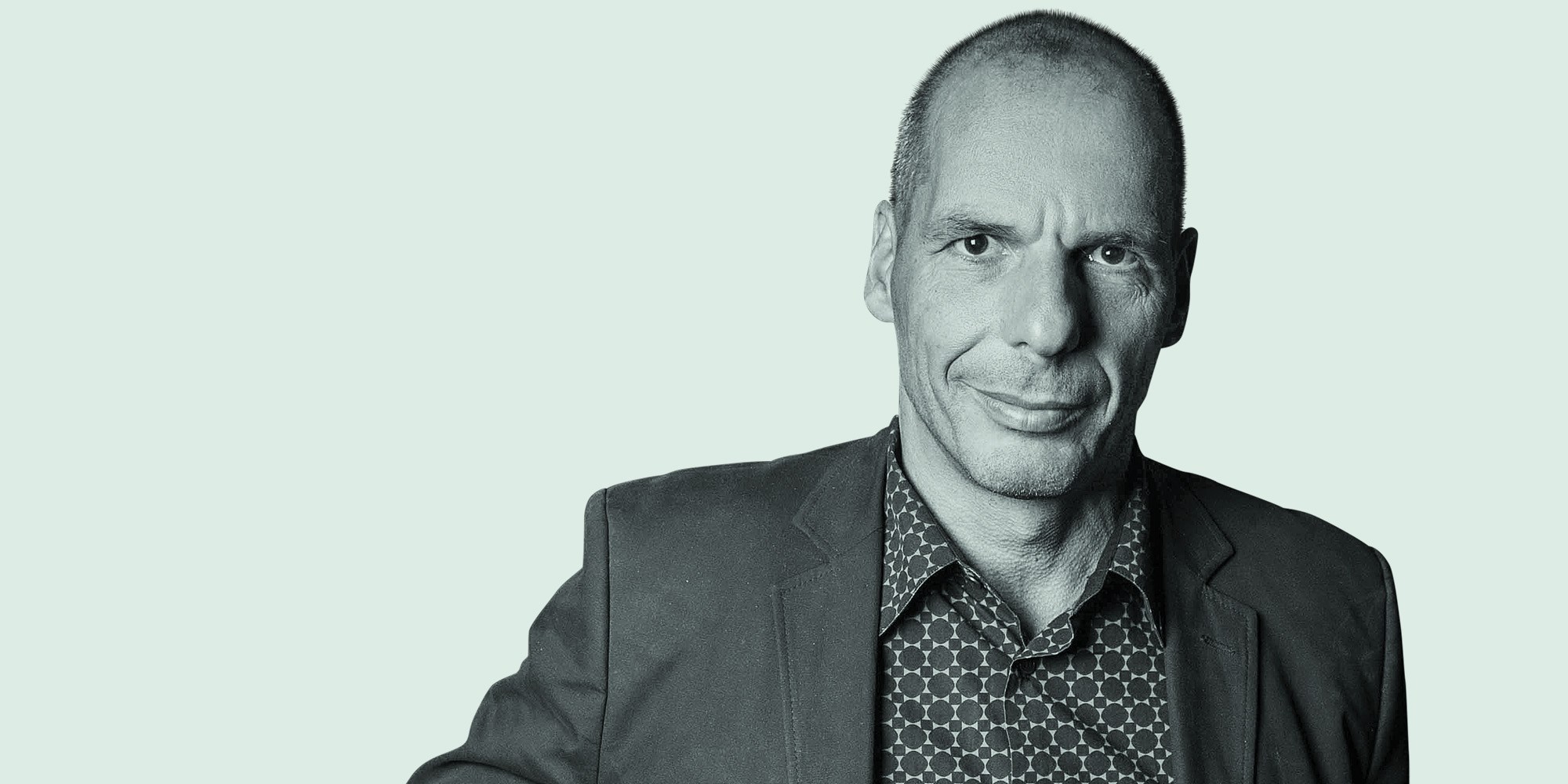“It is something that people find hard to fathom, but in 1980, Greece had the lowest level of debt in Europe. We were save, save, save, like the Chinese are today. Financialization, which is a global phenomenon, hit Greece around then. Suddenly, this culture of parsimony evaporated.” AS TOLD TO ASH CARTER, NOV 2, 2017 Yanis Varoufakis, former finance minister of Greece and author of Adults in the Room, discusses his abysmal first salary, negotiating with the IMF, and what he would say to Donald Trump. Money was always very scarce in my household. Greece was a poor country. My parents were extremely fiscally conservative. Credit cards and loans and mortgages were abhorrent to them. I don’t think
Topics:
Yanis Varoufakis considers the following as important: English, Interviews, Politics and Economics
This could be interesting, too:
Michael Hudson writes Something Nutty Emerging Here
Michael Hudson writes Why Banking Isn’t What You Think It Is
Michael Hudson writes The Horizon Nears on America’s Free Financial Ride
Michael Hudson writes Capital as Power in the Polycrisis

“It is something that people find hard to fathom, but in 1980, Greece had the lowest level of debt in Europe. We were save, save, save, like the Chinese are today. Financialization, which is a global phenomenon, hit Greece around then. Suddenly, this culture of parsimony evaporated.”
Money was always very scarce in my household. Greece was a poor country. My parents were extremely fiscally conservative. Credit cards and loans and mortgages were abhorrent to them. I don’t think they were ever in debt, even when they were very poor. This is something that people find hard to fathom, but in 1980, Greece had the lowest level of debt in Europe. We were save, save, save, like the Chinese are today. Financialization, which is a global phenomenon, hit Greece around then. Suddenly, this culture of parsimony evaporated.
I had a choice when I completed my master’s in statistics: I could opt for a very handsome salary or I could opt for a Ph.D., not even knowing if I would get an academic job in the end. (Tenure, of course, was always iffy.) I chose to condemn myself to permanent poverty, but I never looked back. The fact that I could choose what I researched and I didn’t have anyone cracking a whip—to me, that was priceless.
My first salary came in 1983, when I got my first lectureship at the University of Essex in Britain. I remember the salary well because it was abysmal: £7,520 annually, gross [about $11,500]. That number will always stay with me.
There is no money in the highest form of economic theory. When economists refer to the price of coffee, in the back of their mind they’re using a metaphoric marker: how much coffee you get, let’s say, for one pound of sugar. In physics, the more complicated and abstract the theory, the closer you get to understanding nature. In economics, it’s the opposite. The more abstract and complicated the theory becomes, the less related it is to real, existing capitalism.
I take risks with my own financial affairs, because in the end, I will only have myself to blame. But when it came to carrying a whole nation, I was extremely conservative, and my bargaining strategy was to lay all my cards on the table from the beginning and say, “This is it. Now you can do anything you want, you can shoot me, but I’m not going to budge.”
It’s difficult to negotiate with creditors who do not want their money back—who care only about humiliating you, about making an example of you for others. And this was, I’m afraid, the situation I was facing with Greece’s creditors: the International Monetary Fund, the European Central Bank, and the European Commission. Their great nightmare was a mutually advantageous agreement, because then the Spaniards, the Irish, the Portuguese, and the Italians would interpret this as weakness on their behalf.
We need a new global financial system that is closer to the one that John Maynard Keynes proposed at the Bretton Woods Conference in 1944. Imagine that we have a common currency that is totally fictitious. It’s an accounting unit, managed by the IMF—let’s call it the “kosmos”—and countries that have a trade surplus, like Germany, get taxed. That way, you create a fund that can be used for investment purposes in the parts of the world that need it the most.
Mr. Trump, don’t you dare mess around with China, because you are playing with fire. If the Chinese economy goes into a recession as a result of your shenanigans, you, mate, are in deep trouble.
My view of money is that of the ancient Athenians: It is a fantastic thing to have and a terrible thing to try to get. If you asked me how much I would want, I would say, “An infinite quantity.” If you asked me what I was prepared to do to get it, the answer would be “Nothing.”
I believe in hedonism. If somebody has money, and they haven’t stolen it, and it isn’t exploitative—they’re not destroying the rain forest or using slave labor—they can spend it on whatever gives them pleasure. I am not judgmental. But I do not understand why anyone would get pleasure from gambling.
Money is what we will not need in a good society. The good society is Star Trek. (I’m a Trekkie, by the way.) You have replicators producing everything, and people can just sit around the bridge of the USS Enterprise discussing philosophical issues about alien species.

